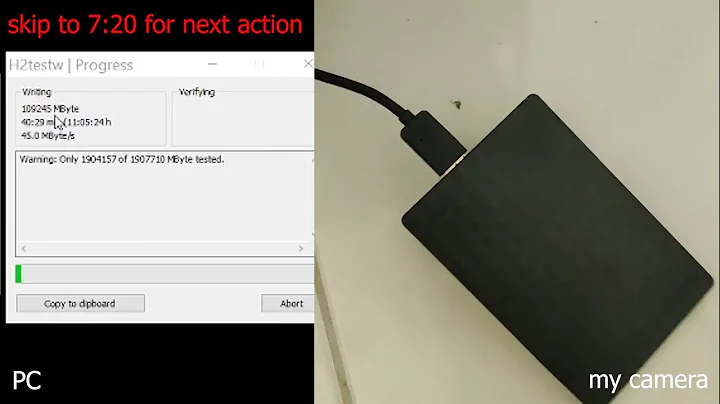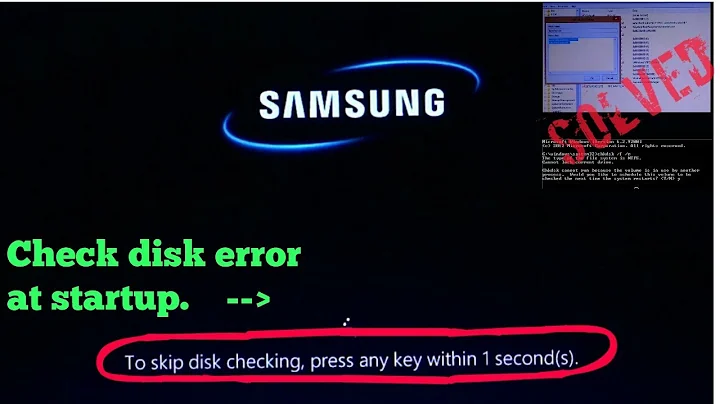How can I calculate how many "free clusters" my 1.0 TB hard drive contains? (I am running chkdsk and it's taking forever..!)
Yes, clusters and allocation unit size are normally the same. Files are split up into logical chunks on the disk based on the allocation size.
4KB is the default on some systems, but I thought that Windows would automatically increase the cluster size depending on how big your drive is.
You might enjoy https://stackoverflow.com/questions/81236/how-can-i-view-the-allocation-unit-size-of-a-ntfs-partition-in-vista for further information and diagnosing the problem yourself (i.e. to detect your ACTUAL allocation size).
P.S. -- USB 2.0 is a terrible protocol for a hard disk, so I would strongly recommend that you find any other alternative possible and use that instead. Especially with such a huge disk... 1 TB is a lot.
If you're doing a "full" chkdsk to make sure that the system can reliably read and write from every sector, it's going to take many hours regardless of which link you're using, though. If there is actually a bad sector on the disk, don't worry about it (unless there are many); the filesystem will automatically handle it when it gets a write error.
Related videos on Youtube
darkAsPitch
Updated on September 18, 2022Comments
-
darkAsPitch over 1 year
How can I calculate the number of free clusters that exist on a freshly formateed NTFS 1.0 TB hard drive?
I began running chkdsk (osn an external USB connected hard drive) about 12 hours ago and it has thus far completed the checking of 1,500,000 free clusters.
Is a cluster simply the allocation unit size? (AKA the smallest possible filesize?)
Because if it's ~4kb and my drive has 1,099,511,627,776 bytes that means there are 268,435,456 total free clusters and my entire chkdsk session will take about 2,150 hours to complete.
Should I just cancel the chkdsk and redo it from a SATA port?



![[SOLVED] - The File Or Directory Is Corrupted Or Unreadable - Hard Drive Wont Open](https://i.ytimg.com/vi/Ix13LRGmzk8/hq720.jpg?sqp=-oaymwEcCNAFEJQDSFXyq4qpAw4IARUAAIhCGAFwAcABBg==&rs=AOn4CLAJy5tqVukKnu62j5fCupJ80TyCMA)
